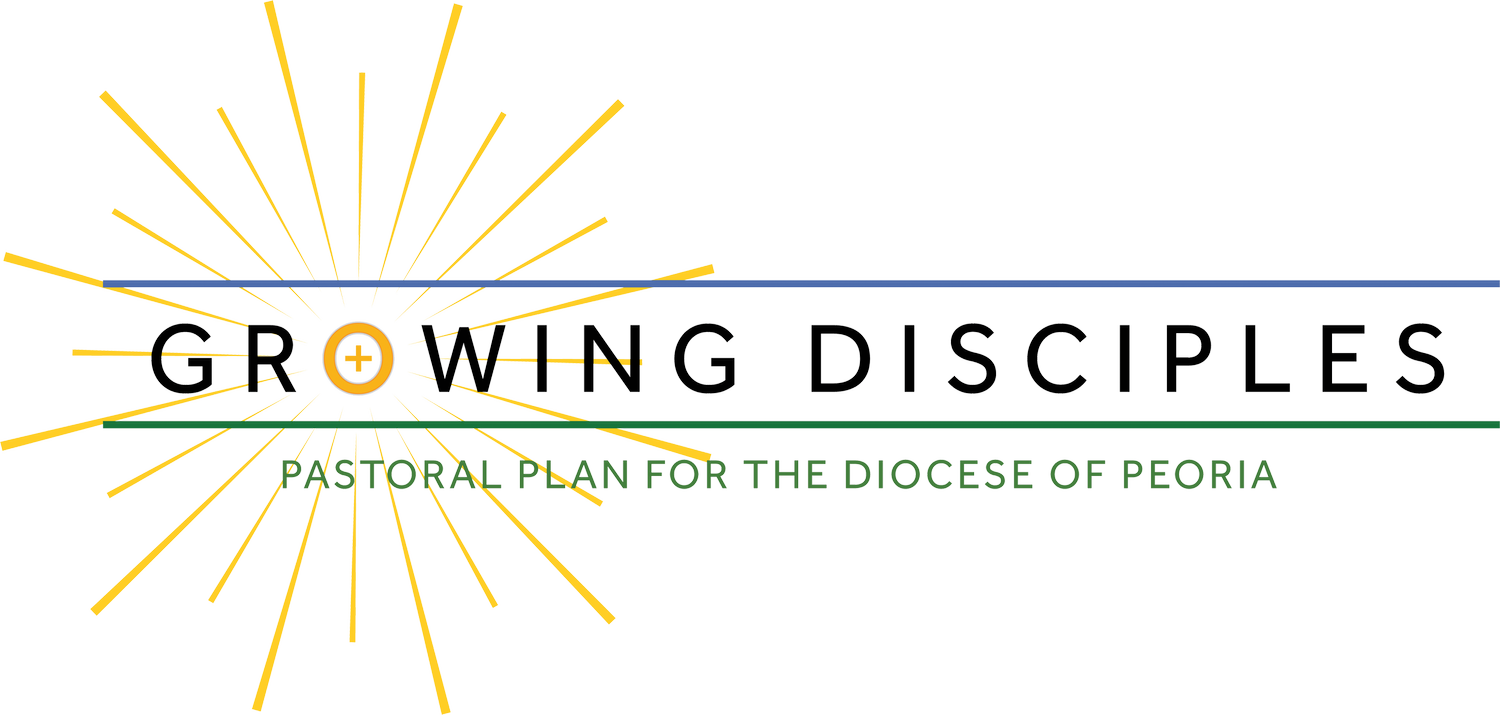Glossary of Terms
Church: A worship site or a sacred edifice set apart for divine worship. It is a structure used for worship.
Decree: An official decision made in writing by the diocesan bishop in a particular matter which has the force of law. The merger of a parish or closure of a church is accomplished by a decree.
Evangelization potential: The determination of how to maximize the use of our resources to bring the Good News of Jesus into every human situation, seeking to convert individuals and society by the divine power of the Gospel itself.
Financially sustainable parishes: A church whose sources of revenue are able to provide the necessary funding for the mission of evangelization and discipleship. This funding includes clergy and lay leadership, evangelization programing, and the physical structures of the parish.
Five Foundations: Through numerous conversations with priests and lay leaders, Bishop Louis Tylka discerned five foundations on which to build the future of the Diocese of Peoria, to become an even more vibrant, mission-driven and sustainable Church. The five foundations are: empower evangelization so as to share the saving name of Jesus, inspire discipleship in each baptized follower of Jesus, strengthen vocations to the priesthood and religious life, deepen our awareness of the presence of Jesus in the Eucharist, and continue the legacy of Archbishop Fulton Sheen.
Goals of the Pastoral Planning Process: To enable the faithful to go make disciples within mission-driven, sustainable parishes and schools, to enhance the vibrancy of our parishes, schools and ministries, and to increase our support of the happiness, health and holiness of our priests.
Merged: Two or more parishes that have been united in such a way that a new parish is established from them. A new, merged parish will have one parish council, one finance council, one pastoral vision, one staff, and one set of finances.
Mission: A church that is not locally self-supporting and depends at least partially on funds and pastoral care from another parish.
Multi-parish pastoring: When two or more parishes are entrusted to one pastor. Also known as a pastorate.
Natural affinity: Demographic, cultural, geographic, or liturgical similarities of communities, often forged by current relationships or past collaborations between parishes.
Not slated for continued use: Church buildings that will no longer be used as a worship site.
Oratory: A worship site that serves a group of the faithful where some pastoral is available as determined by the rector or chaplain. An oratory is not a church.
Parish: A defined community of the faithful within a diocese, whose pastoral care has been entrusted to a pastor. In other words, a parish is a group of people who worship together in a specific place (territory).
Parish Church: See Primary Church
Parochial Administrator: A priest who is entrusted with the pastoral care of a parish on a temporary or provisional basis. See also pastor.
Parochial Vicar: A priest assigned to assist the pastor, under his vision and authority.
Pastor: A priest stably entrusted with the pastoral care of a parish under the authority of the diocesan bishop in whose ministry of Christ he has been called to share.
Personal parish: A parish established to serve a particular group of the faithful determined by reason of their rite, language, or nationality. See also territorial parish.
Planning area: A geographic region in the Diocese (often very similar to vicariates). The planning areas have been established only to help present and discuss possible parish models.
Primary Church: The primary church (also referred to as the parochial church) is the principal worship site for the parish. Full pastoral care will be provided at the primary church, including Sunday and other Masses, confessions, and the other sacraments. The primary church is generally where the parish office is located, the parish records are kept, and often where the priest(s) will reside.
Reasonable geography: Mass should be accessible, so a consideration has been given to a travel time of less than 30 minutes for priests and parishioners to drive to their parish. Consideration also includes awareness of how people in the area travel and any geographic barriers to driving (rivers, highways).
Rector: A priest to whom is entrusted the care and celebration of the Sacraments in a worship site other than a church.
Secondary Church: A church (also known as a subsidiary church) is a worship site for the parish. Some pastoral care will be provided, such as Sunday Mass and other sacraments in so far as possible, as determined by the pastor.
Senior priest in residence: A retired priest who lives in the parish rectory and often assists in celebrating the Sacraments in a church.
Subsumed: When one parish is united to another parish in such a way that the first parish no longer exists and the second parish remains.
Suppress: When a parish is altered in such a way that it no longer exists.
Territorial parish: A parish which includes all the Christian faithful of a certain territory. See also personal parish.
Vicariate: A grouping of parishes within the diocese, defined by a geographic area for the purpose of assisting in coordinating pastoral action.
Worship site: A place dedicated for Divine Worship, the celebration of the sacraments, and pastoral ministry. Worship sites include churches, chapels, oratories, and shrines. The extent of the pastoral care of each worship site is determined based on the needs of the community and the results of the pastoral planning process.
Primary Worship Site: See Primary Church
Secondary Worship Site: See Secondary Church
